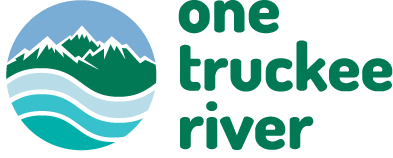Sustainability, Take the Wheel!
Learning to drive and buying your first car are rights of passage for many young people today, and the automobile itself has become ubiquitous in the developed world. The benefits of automobiles in modern society are numerous, but we cannot ignore their environmental pitfalls.
(Side note: this blog post isn’t just going to tell you never to drive a car again. We’ve got plenty of feasible strategies to make your driving habits more river-friendly.)
How do cars even affect water quality?
We frequently hear about how harmful emissions from vehicles are damaging the earth’s atmosphere and polluting the air, but we rarely hear about how automobiles are impacting local water quality.
The first major way the automobile boom adversely impacted water didn’t result from cars themselves, rather, the roads they necessitated. Roadway construction causes erosion, damages habitats, and increases stormwater run-off due to a larger surface area of impervious surfaces. Impervious surfaces force any water falling on them to flow into rivers and streams because it can no longer infiltrate and drain into the soil. Instead, the water must flow over covered land, down storm drains, and out to our waterways -- in our case to the Truckee River (check out our post about stormwater for more information on this topic).

The effects cars themselves have on water bodies can be placed into two categories: direct impacts and indirect impacts.
Direct impacts
Most of the water contamination from cars are direct impacts. The pollutants are deposited on the road surface and then washed down storm drains to your local river, bay, or lake.
There is truly so much stuff coming off your car. Pieces of copper particles from brake pads break off from repeated stress; tires wear down leaving behind remnants of rubber on the road; drips of oil, gas, and antifreeze leak onto the road surface, all of them waiting to be washed down our storm drains.
Some of the pollutants are intentionally applied to our road surface, or even cars themselves. Deicing salts and chemicals are used primarily in winter driving conditions to help melt ice, creating safer driving conditions. Unfortunately, the melted ice will ultimately wash these salts and chemicals down storm drains to rivers.
You’ll see a similar result if you wash your car in the driveway; all of the dirty soap water will make its way down the storm drains, too. Not only does this lead to run-off picking up pollutants off the street, but many soaps contain phosphates, which promote algae growth in our fresh water and can have serious consequences.
Indirect impacts
Indirect impacts occur when the release of the pollutant doesn’t happen in tandem with its effects. For example, an indirect impact vehicles have on water is when storm events cause atmospheric fallout and airborne pollutants from exhaust settle on roadways and other surfaces, eventually washing the particulates into a nearby stream of river.
How can we curb it?
Alright, now we know the causes; let’s talk about solutions.
Some of the solutions, like stronger regulations for heavy metal loads in brake pads and broader requirements for low impact development in cities, will need to happen on a larger, more sweeping scale (think government and policy changes). But, there are many other choices car owners can start making today to be more river-friendly:
- Keep your car well maintained by checking for oil and other leaks and getting them fixed promptly.
- If you know a car is leaking oil, use drip pans to catch the oil and avoid the hassle of cleaning it off pavement. If you do end up with an oil spill, use the kitty litter method to soak up the oil rather than wash it down the storm drain.
- Always dispose of used oil and other fluids properly. Use Keep Truckee Meadows Beautiful’s Recycling Guide to find disposal locations in our region.
- When you need new brake pads, consider purchasing copper-free pads. Ask your mechanic about the options.
- In winter months, try to limit your deicing to only what is absolutely necessary. Don't worry about stopping entirely; safety always comes first.
- Think twice before washing your car in the driveway. Commercial car washes are required to recycle and properly dispose of the dirty and soapy water.
- If you must wash your car at home, try to do it on a permeable surface, like lawn or gravel.
- Be conscious of the cleaning products you use and make sure you choose chlorine- and phosphate-free soaps. Read more in our previous blog on cleaning products.
- And finally, when you’re able to, consider biking, walking, carpooling, or taking public transport instead of driving. Check out RTC Smart Trips for ideas on how to get started and consider signing up for the Truckee Meadows Bicycle Alliance Commuter Challenge in May.

